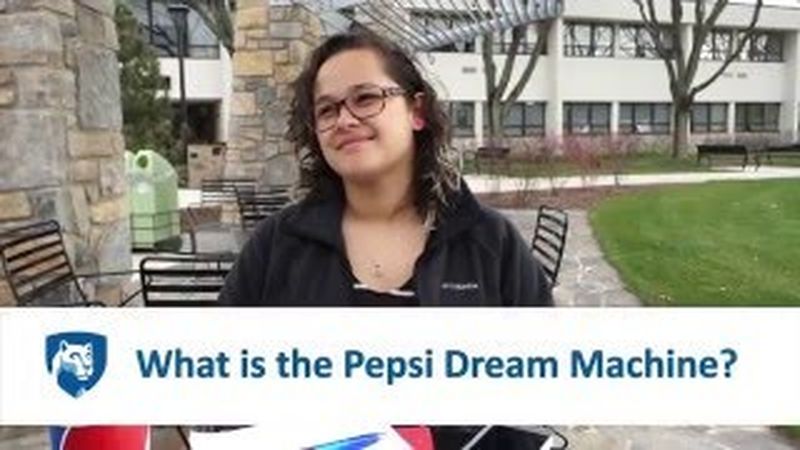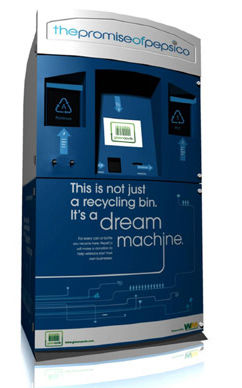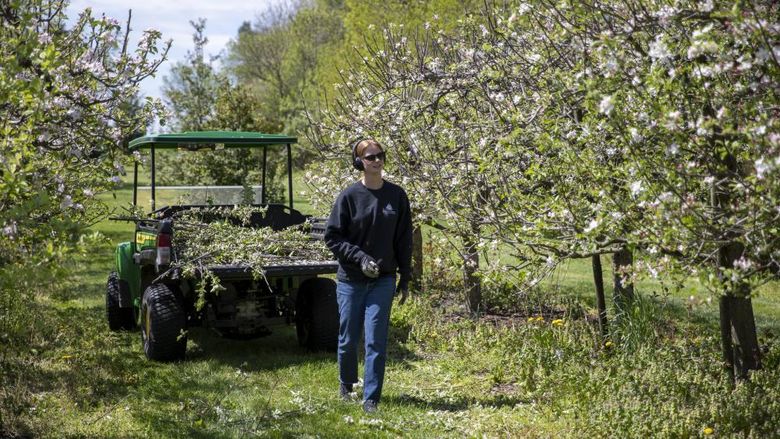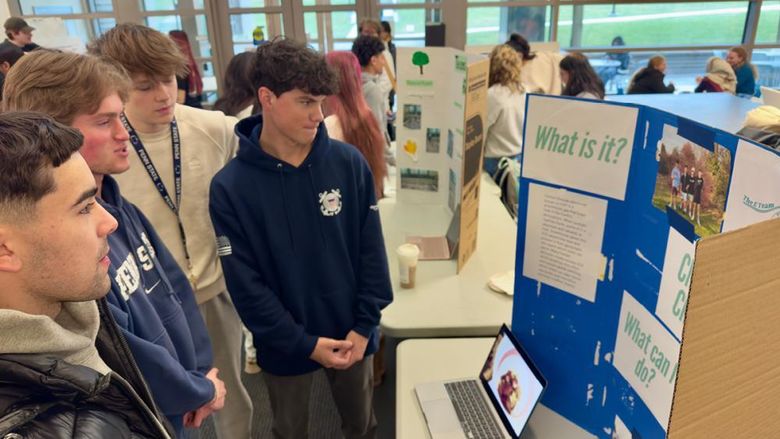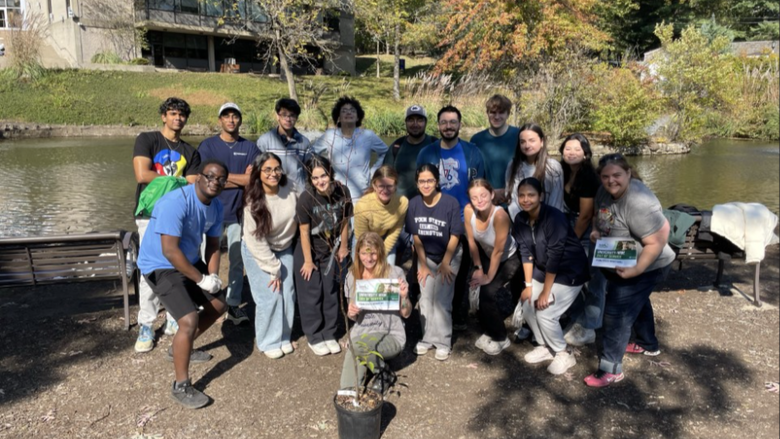READING, Pa. — In an effort to improve recycling efforts at Penn State Berks, the campus' Sustainability Team sought the assistance of the Media Commons to develop a student written and produced video focusing on the PepsiCo Dream Machine, a convenient and rewarding way to recycle bottles and cans on the go in a kiosk in Tully’s cafeteria in the Perkins Student Center.
“There has been a lack of awareness among the campus community about the recycling initiatives on campus, including the PepsiCo Dream Machine,” said Mahsa Kazempour, associate professor of science education and chair of the Sustainability Team at Penn State Berks. “To address this issue, we decided to create a series of brief informative videos focusing on the various campus initiatives related to waste reduction through the reduce, reuse, recycle model. We decided to start with a video on the Dream Machine.”
Savannah Lorah, a senior majoring in science who was completing an independent study with Kazempour, worked with Penn State Berks Food Services to write the script, while Jerome Nicholson, a senior majoring in accounting who worked in the Media Commons, handled video production under the direction of Mary Ann Mengel, instructional multimedia designer.
In 2014, Penn State Berks advanced its recycling efforts by teaming up with PepsiCo Recycling to bring a PepsiCo Dream Machine kiosk to campus. As part of the collaboration, for the past two years Penn State Berks has completed PepsiCo’s nationwide college recycling challenge, which pits participating colleges and universities against one another in a competition that tracks recycling progress online at PepsiCoRecycling.com. Penn State Berks placed third and received prize money in 2015, and placed eighth this year.
“This past year, while we did not place in the top four positions, we did place eighth, which is still commendable for a national competition,” said Kathy L. Ashby, director of Housing & Food Services at Penn State Berks. “I view this as a success, because it was the direct result of actual student participation, not a small group of individuals, which is really the ultimate goal, to keep these items out of the trash stream and landfills.”
“While the Dream Machine is in a very visible location, many students still walk past it and throw plastic bottles in the trash,” added Ashby. “I am hopeful that the video will increase student awareness and understanding of the how the machine works, and how the program can benefit them, their campus and the environment.”
Mengel describes the video project as a success. “This video can be shared with incoming students as part of orientation to increase awareness of the Dream Machine. Video is extremely effective to show the machine located in our dining hall, illustrate how it's used, and convey the benefits of participation. I'm hopeful that this project will further increase recycling efforts at our campus, and I look forward to coordinating the production of videos about other sustainability efforts at our campus.”
Kazempour said that this and other videos to be produced as part of the efforts of the Sustainability Team will be used in multiple ways to inform the campus community about sustainability efforts and encourage sustainable behavior in order to decrease our ecological footprints.
Members of the Sustainability Team, a group comprised of faculty, staff and students, are confident and hopeful that the campus community will continue to build on its success and look forward to another award-winning victory in the future, especially given the additional exposure the Dream Machine will receive through this informative video.
